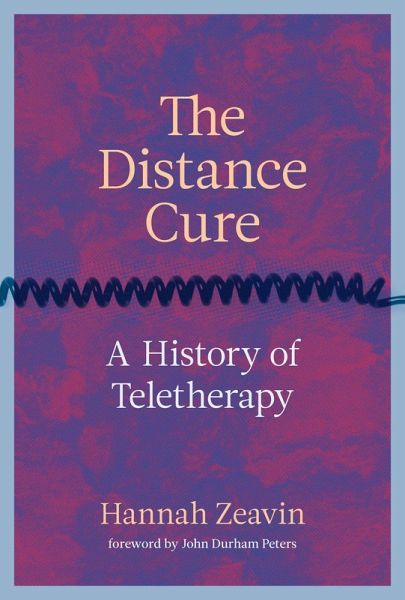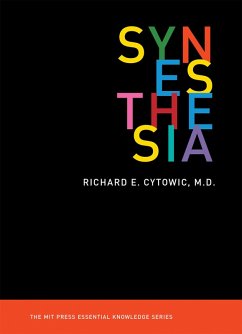
The Distance Cure (eBook, ePUB)
A History of Teletherapy

PAYBACK Punkte
10 °P sammeln!
Psychotherapy across distance and time, from Freud's treatments by mail to crisis hotlines, radio call-ins, chatbots, and Zoom sessions. Therapy has long understood itself as taking place in a room, with two (or more) people engaged in person-to-person conversation. And yet, starting with Freud's treatments by mail, psychotherapy has operated through multiple communication technologies and media. These have included advice columns, radio broadcasts, crisis hotlines, video, personal computers, and mobile phones; the therapists (broadly defined) can be professional or untrained, strangers or cha...
Psychotherapy across distance and time, from Freud's treatments by mail to crisis hotlines, radio call-ins, chatbots, and Zoom sessions. Therapy has long understood itself as taking place in a room, with two (or more) people engaged in person-to-person conversation. And yet, starting with Freud's treatments by mail, psychotherapy has operated through multiple communication technologies and media. These have included advice columns, radio broadcasts, crisis hotlines, video, personal computers, and mobile phones; the therapists (broadly defined) can be professional or untrained, strangers or chatbots. In The Distance Cure, Hannah Zeavin proposes a reconfiguration of the traditional therapeutic dyad of therapist and patient as a triad: therapist, patient, and communication technology. Zeavin tracks the history of teletherapy (understood as a therapeutic interaction over distance) and its metamorphosis from a model of cure to one of contingent help. She describes its initial use in ongoing care, its role in crisis intervention and symptom management, and our pandemic-mandated reliance on regular Zoom sessions. Her account of the "distanced intimacy" of the therapeutic relationship offers a powerful rejoinder to the notion that contact across distance (or screens) is always less useful, or useless, to the person seeking therapeutic treatment or connection. At the same time, these modes of care can quickly become a backdoor for surveillance and disrupt ethical standards important to the therapeutic relationship. The history of the conventional therapeutic scenario cannot be told in isolation from its shadow form, teletherapy. Therapy, Zeavin tells us, was never just a "talking cure"; it has always been a communication cure.
Dieser Download kann aus rechtlichen Gründen nur mit Rechnungsadresse in A, B, BG, CY, CZ, D, DK, EW, E, FIN, F, GR, HR, H, IRL, I, LT, L, LR, M, NL, PL, P, R, S, SLO, SK ausgeliefert werden.













